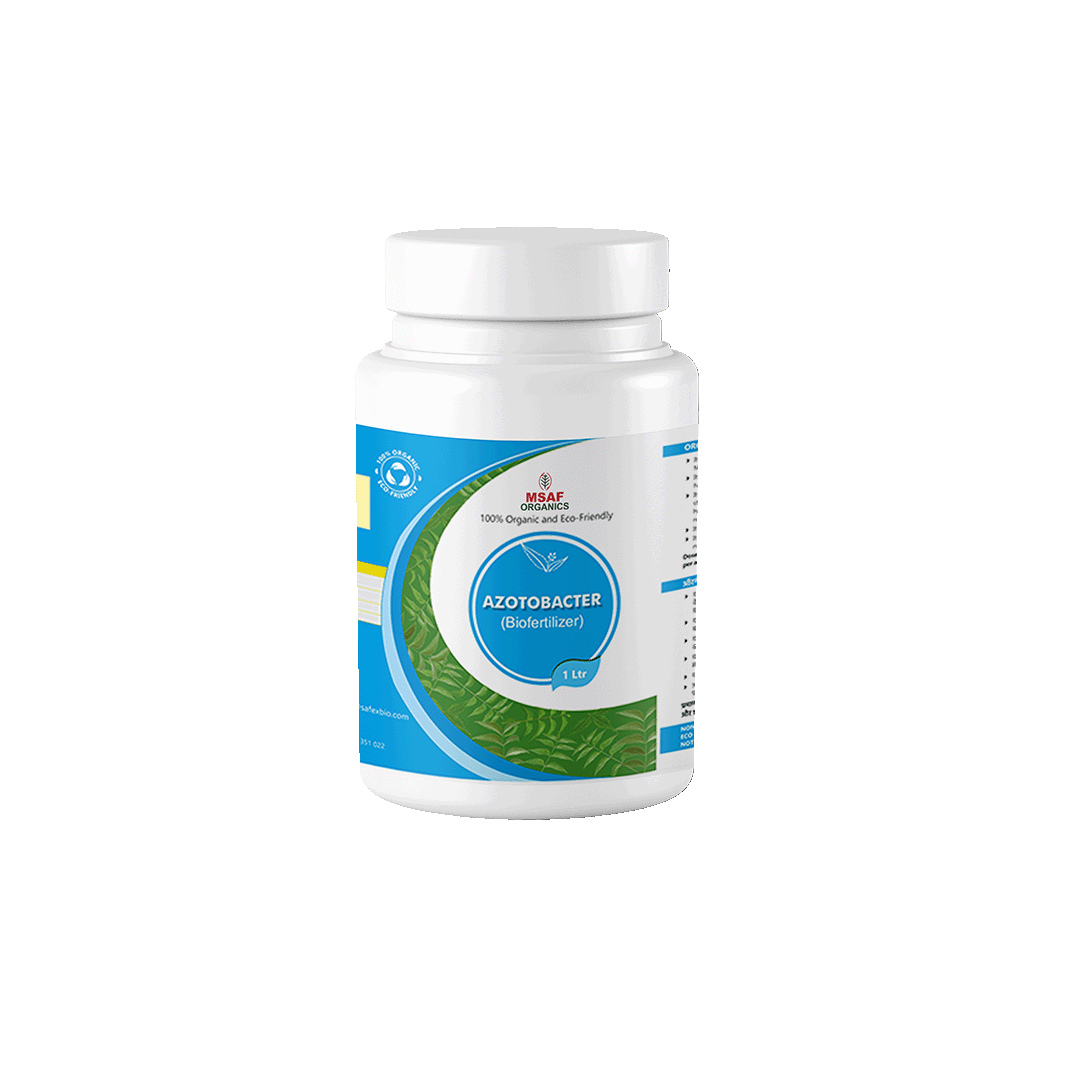AZOTOBACTOR

Product Description:
Azotobacter is a beneficial bacterium commonly used in agriculture for its nitrogen-fixing properties. It belongs to the genus Azotobacter, known for its ability to convert atmospheric nitrogen into a form that plants can readily use. This makes it an essential component of sustainable farming practices, as it reduces the need for synthetic nitrogen fertilizers, which can have negative environmental impacts.
Our Azotobacter product is carefully formulated to ensure maximum effectiveness and viability of the bacteria. It is produced using advanced techniques to maintain high levels of bacterial populations, ensuring consistent results in enhancing soil fertility and plant growth.
How to Use in Farming:
Seed Treatment: Mix the recommended dosage of Azotobacter with water to create a suspension. Dip seeds in this suspension before planting to ensure direct contact between the bacteria and the seed surface. This facilitates early colonization of the rhizosphere by Azotobacter, promoting robust root development and nitrogen fixation.
Soil Application: Apply Azotobacter directly to the soil either through broadcasting or localized application. Mix the specified amount of product with compost or any other organic carrier for better adherence to soil particles. Incorporate the mixture into the soil either before sowing or during crop cultivation to introduce Azotobacter into the root zone.
Foliar Spray: Dilute Azotobacter in water according to recommended rates and spray directly onto the foliage of crops. Ensure thorough coverage of leaves, stems, and other above-ground plant parts. Foliar application helps establish beneficial microbial communities on the plant surface, enhancing nutrient uptake and overall plant health.
Compatibility: Azotobacter can be used in conjunction with other biofertilizers, organic inputs, and certain chemical fertilizers. However, avoid mixing with fungicides, herbicides, or pesticides, as they may adversely affect bacterial viability and effectiveness.
Optimal Conditions: For best results, apply Azotobacter under favorable environmental conditions, such as adequate moisture and temperature (typically between 20°C to 30°C). Incorporating organic matter into the soil can also improve the survival and activity of Azotobacter populations.
Application Timing: Start using Azotobacter early in the growing season to maximize its benefits throughout the crop cycle. Repeat applications may be necessary depending on soil conditions, crop type, and specific agricultural practices.


